Explore the Best AI Image Gallery

Quantum Creativity: Where Technology Meets Imagination
The realm of creativity has always been a space where innovation and imagination converge. In recent years, this convergence has taken on a new dimension with the emergence of quantum computing. This revolutionary technology, harnessing the power of quantum mechanics, promises to reshape our understanding of computation and open up unprecedented possibilities for creative expression.
Quantum computers operate fundamentally differently from classical computers. They utilize qubits, which can exist in multiple states simultaneously (superposition), enabling them to perform calculations at an exponentially faster rate. This unparalleled computational power has the potential to revolutionize various fields, including art, design, music, and storytelling.
Unlocking New Creative Frontiers
- Generative Art: Quantum algorithms can generate intricate and complex patterns, textures, and designs that would be impossible for classical computers to produce. This opens up exciting avenues for artists to explore new aesthetic realms and create stunning visual experiences.
- Interactive Storytelling: Quantum computers could power immersive storytelling experiences where narratives adapt dynamically based on user choices. Imagine stories that unfold in countless branching paths, offering truly personalized and engaging narratives.
- Music Composition: Quantum algorithms can analyze vast musical datasets and generate innovative melodies, harmonies, and rhythms. This could empower musicians to explore novel soundscapes and push the boundaries of musical creativity.
Ethical Considerations in Quantum Creativity
While the potential benefits of quantum computing for the creative industry are immense, it is crucial to address the ethical considerations that arise with this powerful technology:
- Bias and Representation: Quantum algorithms are trained on data, which can reflect existing societal biases. It is essential to ensure that these algorithms are developed and used responsibly to avoid perpetuating harmful stereotypes or discrimination in creative outputs.
- Ownership and Authorship: When quantum algorithms generate creative content, questions arise about ownership and authorship. Clear guidelines and legal frameworks are needed to address these complexities.
- Access and Equity: Quantum computing is a resource-intensive technology. It is important to ensure equitable access to this powerful tool and prevent it from becoming exclusive to large corporations or institutions.
Future Trends in Quantum Creativity
The intersection of quantum computing and creativity is a rapidly evolving field. Here are some key trends to watch:
- Increased Accessibility: Cloud-based quantum computing platforms will make this technology more accessible to individual artists, designers, and creators.
- Hybrid Approaches: Quantum computers will be increasingly used in conjunction with classical computers, leveraging the strengths of both paradigms for enhanced creative applications.
- New Creative Disciplines: Quantum computing will likely lead to the emergence of entirely new creative disciplines and art forms that we can only begin to imagine.
Quantum creativity is poised to revolutionize the way we create, experience, and interact with art. By embracing this transformative technology responsibly, we can unlock a future where imagination knows no bounds.



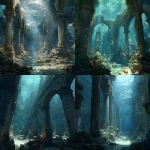
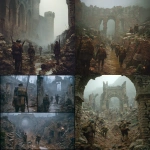







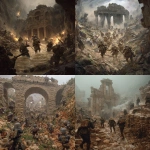

](https://images.ai-img.art/thumbnails/150/44b76c49c47b4c47f13eac7883c63827d3f89aa77fe64ce0cbecb9d3ce434499.webp)


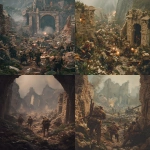




](https://images.ai-img.art/thumbnails/150/c48401bc3fad7ff7f2dbd37b894d3f53cb42d5072dfacb8bfdcdeeef28a29b04.webp)


](https://images.ai-img.art/thumbnails/150/c2241c1eabdcb7b9a98be19a7e8d850b6cffe0e0c91c1ccda8dd807e2a96b187.webp)

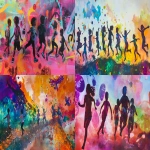















](https://images.ai-img.art/thumbnails/150/47d44e177f427ea6b32f96ea225db96c5158850a0cf01d1bad93e45dd4594430.webp)



](https://images.ai-img.art/thumbnails/150/09ccae5e68e2b6da6b5da87ef69f7eb09e80c99ca39ba886c5c3773cbb3b89ba.webp)

